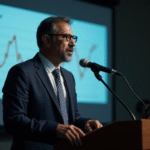A Global Health Challenge
On September 21st, the world commemorates World Alzheimer’s Day, a date established in 1994 by the World Health Organization (WHO) and Alzheimer’s Disease International (ADI) to raise awareness about this neurodegenerative disease affecting memory, thinking, and daily life of millions globally.
Prevalence and Impact
Globally, over 55 million people suffer from some form of dementia, with projections estimating an increase to 78 million by 2030. Alzheimer’s accounts for 60-70% of cases and is now recognized as the seventh leading cause of death worldwide.
Mexico’s Situation
In Mexico, it is estimated that 1.3 million people live with Alzheimer’s, though experts warn that the actual number could be higher due to insufficient early diagnosis.
Ramiro Ruiz García, subdirector of Education at the National Institute of Neurology and Neurosurgery (INNN), emphasizes that “aging is not normal for memory loss; this is entirely incorrect.”
Delayed Diagnosis and Treatment
The INNN implements actions to identify various dementia types early and provide pharmacological treatment, occupational therapy, and cognitive and physical rehabilitation. However, 70% of patients arrive in advanced stages, limiting intervention effectiveness.
Risk Factors and Prevention
Though the exact cause of Alzheimer’s remains unknown, identified risk factors include low education, untreated depression, smoking, sedentary lifestyle, and obesity. Non-modifiable factors are advanced age and family history.
According to WHO, up to 45% of cases could be prevented or delayed by adopting healthy habits like regular physical activity, not smoking, moderate alcohol consumption, controlling hypertension and diabetes, and maintaining a balanced diet.
Global Campaign: “Ask About Dementia”
The World Alzheimer’s Day 2025 promotes the hashtags #AskAboutDementia and #AskAboutAlzheimer’s to encourage the public to learn about and normalize conversations around this disease. The goal is to combat stigma, promote early diagnosis, and ensure support for patients and caregivers.
Alzheimer’s associations worldwide conduct memory walks, information days, and fundraising activities to highlight the disease’s impact and demand national dementia plans—an effective tool for ensuring diagnosis, treatment, and post-diagnosis support.
Call to Action
Experts agree that Alzheimer’s should be addressed as a public health issue. Early detection, treatment access, and caregiver support are crucial for helping individuals maintain independence longer.
Mexico’s Secretary of Health urges the population to inform themselves, recognize symptoms, and seek medical help for any cognitive decline signs. Breaking the silence around Alzheimer’s is the first step to confronting this challenge for millions of families.
Key Questions and Answers
- Q: What is World Alzheimer’s Day? A: Established in 1994, it aims to raise awareness about Alzheimer’s disease and dementia.
- Q: How prevalent is Alzheimer’s? A: Over 55 million people worldwide suffer from dementia, with projections of 78 million by 2030.
- Q: What are the risk factors for Alzheimer’s? A: Risk factors include low education, untreated depression, smoking, sedentary lifestyle, and obesity. Advanced age and family history are non-modifiable factors.
- Q: How can Alzheimer’s be prevented? A: Up to 45% of cases could be prevented or delayed through healthy habits like regular exercise, not smoking, moderate alcohol consumption, controlling hypertension and diabetes, and maintaining a balanced diet.
- Q: What is the global campaign for World Alzheimer’s Day 2025? A: The campaign promotes the hashtags #AskAboutDementia and #AskAboutAlzheimer’s to encourage learning about and normalizing conversations around dementia.
- Q: Why is early detection and support important for Alzheimer’s? A: Early detection, treatment access, and caregiver support are crucial for helping individuals maintain independence longer.






